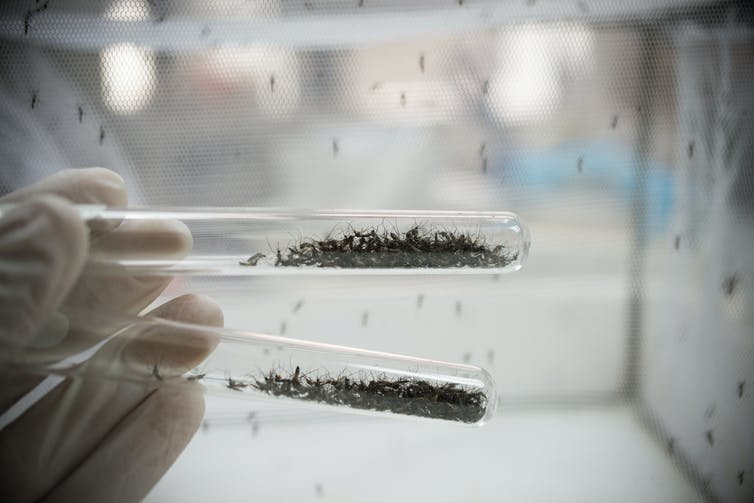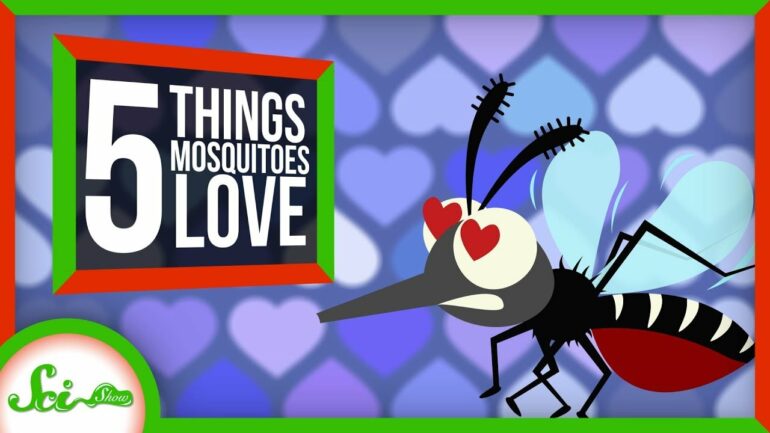Mosquitoes are the world’s deadliest animal. Over 1 million deaths per year are attributed to mosquito-borne diseases, including malaria, yellow fever, dengue fever, Zika and chikungunya fever.
How mosquitoes seek out and feed on their hosts are important factors in how a virus circulates in nature. Mosquitoes spread diseases by acting as carriers of viruses and other pathogens: A mosquito that bites a person infected with a virus can acquire the virus and pass it on to the next person it bites.
For immunologists and infectious disease researchers like me, a better understanding of how a virus interacts with a host may offer new strategies for preventing and treating mosquito-borne diseases. In our recently published study, my colleagues and I found that some viruses can alter a person’s body odor to be more attractive to mosquitoes, leading to more bites that allow a virus to spread.
Viruses change host odors to attract mosquitoes
Mosquitoes locate a potential host through different sensory cues, such as your body temperature and the carbon dioxide emitted from your breath. Odors also play a role. Previous lab research has found that mice infected with malaria have changes in their scents that make them more attractive to mosquitoes. With this in mind, my colleagues and I wondered if other mosquito-borne viruses, such as dengue and Zika, can also change a person’s scent to make them more attractive to mosquitoes, and whether there is a way to prevent these changes.
A number of factors can make you more attractive to mosquitoes, including the odors you emit.
To investigate this, we placed mice infected with the dengue or Zika virus, uninfected mice and mosquitoes in one of three arms of a glass chamber. When we applied airflow through the mouse chambers to funnel their odors toward the mosquitoes, we found that more mosquitoes chose to fly toward the infected mice over the uninfected mice.
We ruled out carbon dioxide as a reason for why the mosquitoes were attracted to the infected mice, because while Zika-infected mice emitted less carbon dioxide than uninfected mice, dengue-infected mice did not change emission levels. Likewise, we ruled out body temperature as a potential attractive factor when mosquitoes did not differentiate between mice with elevated or normal body temperatures.
Then we assessed the role of body odors in the mosquitoes’ increased attraction to infected mice. After placing a filter in the glass chambers to prevent mice odors from reaching the mosquitoes, we found that the number of mosquitoes flying toward infected and uninfected mice were comparable. This suggests that there was something about the odors of the infected mice that drew the mosquitoes toward them.

Volunteering in a mosquito study may require a few bites.
Panyawat Boontanom/EyeEm via Getty Images
To identify the odor, we…



